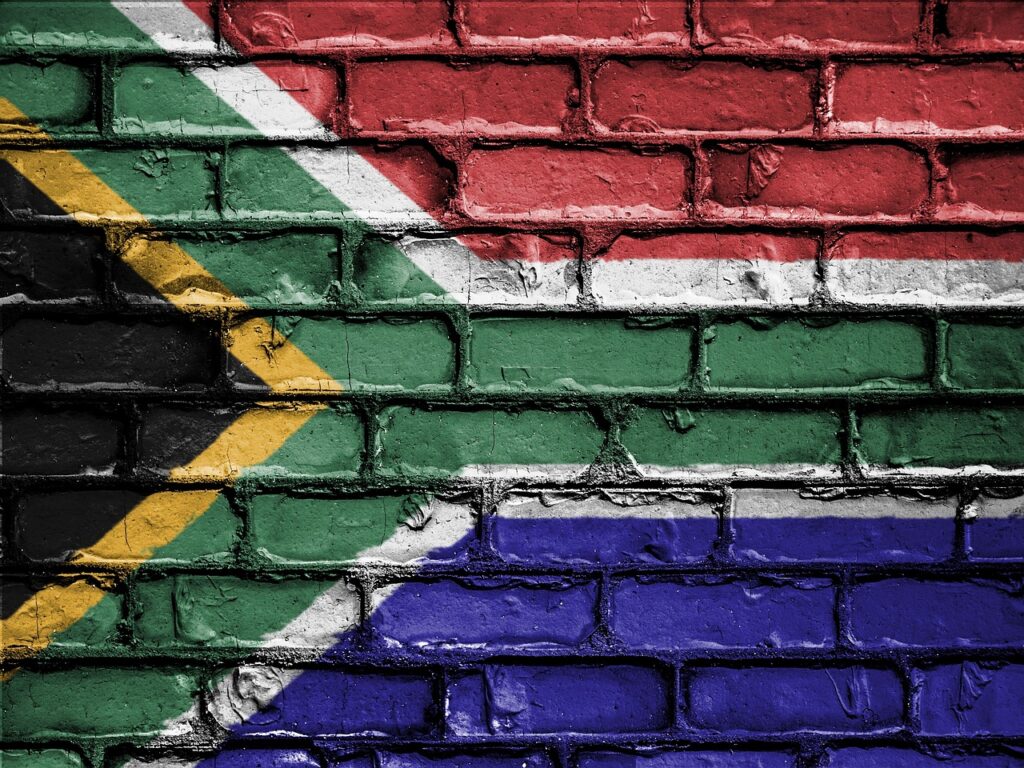On the eve of South Africa’s May 27 general elections, a momentous change quietly took place in the country’s drug laws, overshadowed by the political headlines. For the first time in three decades, the African National Congress (ANC) faced the loss of its parliamentary majority. Amidst this political upheaval, President Cyril Ramaphosa signed the Cannabis for Private Purposes Act, making South Africa the first African nation to legalize the use of marijuana.
This groundbreaking legislation, signed just a day before the historic election, decriminalizes cannabis for personal use. Adults can now grow and consume marijuana, provided it’s not in the presence of children. Moreover, the Act mandates the automatic expungement of records for past cannabis-related offenses, though details on the implementation and the potential release of the 3,000 individuals imprisoned for such crimes as of 2022 remain unclear.
Activists, however, argue that this is merely the beginning of their long-fought battle. “Ramaphosa finally used his pen, and cannabis is no longer listed as a dangerous, dependency-inducing substance in South Africa,” said Myrtle Clarke, co-founder of Fields of Green for ALL, an NGO advocating for cannabis reform, from Johannesburg. “Now, we need to focus on legalizing trade, which remains prohibited.”
South Africa’s new law differs from other countries like Malta, Canada, and Uruguay, where cannabis is not only legal but commercially available. Here, selling cannabis remains illegal except for medicinal use with a doctor’s prescription. Clarke highlights that while the bill prevents being charged as a drug dealer for personal quantities of cannabis, it does little to address the burgeoning grey market. Essentially, growing large quantities for personal use is legal, but profiting from it is not.
The journey to this legislation began in 2018 when a court ruled that private cannabis use was constitutional, prompting the government to draft a bill within two years. Since then, numerous shops and dispensaries have operated under Section 21 of the Medicines Act, which allows “unregistered medicines” to be prescribed by doctors, including cannabis.
“We don’t have trouble with the police,” a Durban dispensary owner told Al Jazeera anonymously. “As long as we’re not selling to minors or offering anything besides weed, like magic mushrooms, we’re fine. Some cops even protect us and come here to smoke.”
Despite these provisions, legal ambiguities have led to raids on dispensaries and private members’ clubs. For instance, The Haze Club (THC) in Johannesburg, a collective of private cannabis growers, was raided in 2020 and is still facing legal battles.
“Dispersaries are popping up all over South Africa,” added Charl Henning, a team member at Fields of Green for ALL. With the anticipation of the new legislation, these outlets have rapidly increased in number. “There’s been an explosion of clubs and shops in the last six months, saturating the market. We just need to regulate it.”
Cannabis has deep historical roots in Southern Africa, introduced likely by medieval Arab traders. When Dutch settlers arrived in Cape Town in the 17th century, they found the Khoisan people smoking “dagga” (as the plant was known locally). The Zulu warriors used it to calm their nerves before battle, and Sotho women for pain relief during childbirth. European settlers even cultivated the plant to keep their non-white workforce content, though few indulged themselves.
Initially, dagga was not a concern for the settlers until Indian laborers introduced the term “ganja” and its use spread in closer proximity to white settlers. This led to the 1870 law prohibiting the sale of dagga to Indian laborers, and eventually, in 1922, South Africa imposed a nationwide ban on the plant.
The apartheid era saw the introduction of the 1971 Abuse of Dependence-Producing Substances and Rehabilitation Centres Act, hailed as one of the world’s strictest drug laws. This crackdown was felt most acutely in segregated townships where possession of even a single joint could result in lengthy prison sentences. However, rural areas, particularly in the Eastern Cape’s “dagga belt,” were largely left alone, allowing marijuana cultivation to support local economies.
In 1992, the Drugs and Drug Trafficking Act replaced the 1971 law. Even after apartheid ended, the new government retained its stringent legal framework. Police efforts to eradicate dagga fields with herbicides persisted until 2017. This relentless war on cannabis faced a significant challenge when Rastafarian lawyer Ras Gareth Prince successfully argued in court that cannabis prohibition violated his right to privacy. The Western Cape High Court’s decision was upheld by the Constitutional Court in 2018, leading to a dramatic decrease in cannabis-related arrests and a 2023 directive for police to cease pot busts.
Given a two-year deadline by the court, the government repeatedly postponed finalizing the new cannabis laws. President Ramaphosa’s promises of a booming new industry were met with delays until the recent enactment of the Cannabis for Private Purposes Act.
Despite its imperfections, Myrtle Clarke views the new law as a crucial step forward. “There’s been considerable resistance within the cannabis community due to the bill’s flaws,” she noted. “Over the years, multiple drafts have been proposed, each improving upon the last. Ultimately, we accepted this version to avoid endless parliamentary debates. Publishing the bill allows us to move forward.”
Clarke emphasizes that the current challenge is to regulate cannabis trade and shift public perception away from viewing it as a dangerous drug. She criticizes lawmakers for their lack of understanding and adherence to outdated prejudices. “We joke that the government thinks we smoke the leaves, which have no effect, but it’s true,” she says.
Steve Rolles, a policy analyst with the UK-based Transform Drug Policy Foundation, believes South Africa’s measured approach may help it avoid pitfalls seen in countries like Thailand, where rapid legalization led to a backlash. Thailand’s swift deregulation in 2022 resulted in a chaotic market, provoking moral panic and potential policy reversals. In contrast, South Africa’s careful regulation could prevent similar issues.
As the first African country to legalize recreational cannabis, South Africa is closely watched by neighboring nations. While some, like Malawi, have legalized medical marijuana, and others like Ghana have decriminalized small quantities for personal use, South Africa’s move is unprecedented.
Morocco’s 2021 legalization of cannabis for medical and industrial use, including hemp for textiles, hints at a potential shift toward broader legalization. Public debates involving cannabis farmers and investors in Morocco signal a growing acceptance of cannabis use for relaxation, traditionally embedded in Moroccan culture.
Eswatini (formerly Swaziland), a small kingdom surrounded by South Africa and Mozambique, is particularly attentive to these developments. Under British colonial law, cannabis, or “insangu,” remains banned in Eswatini. Yet, local farmers have long relied on illicitly exporting strains like Swazi Gold. South Africa’s legalization threatens these traditional livelihoods.
“We fear that legalizing cannabis in South Africa creates an uneven playing field, jeopardizing our traditional cultivation practices and unique genetic strains,” said Trevor Shongwe of the Eswatini Hemp and Cannabis Association (EHCA).
Shongwe advocates for Eswatini to legalize cannabis domestically and protect its Swazi Gold strain through trademarking, similar to Mexico’s protection of tequila and mezcal. “Legal pathways are essential for our local farmers to thrive. Without them, they will continue to struggle in the shadows,” he said.
As South Africa navigates the complexities of its new cannabis laws, it stands at the forefront of a movement that could reshape the continent’s approach to cannabis regulation.
“South Africa Legalises Cannabis Use. Will the Rest of Africa Follow?” Https://Www.Aljazeera.Com, 10 Jun. 2024, www.aljazeera.com/news/2024/6/10/south-africa-legalises-cannabis-use-will-the-rest-of-africa-follow. Accessed 10 Jun. 2024.

